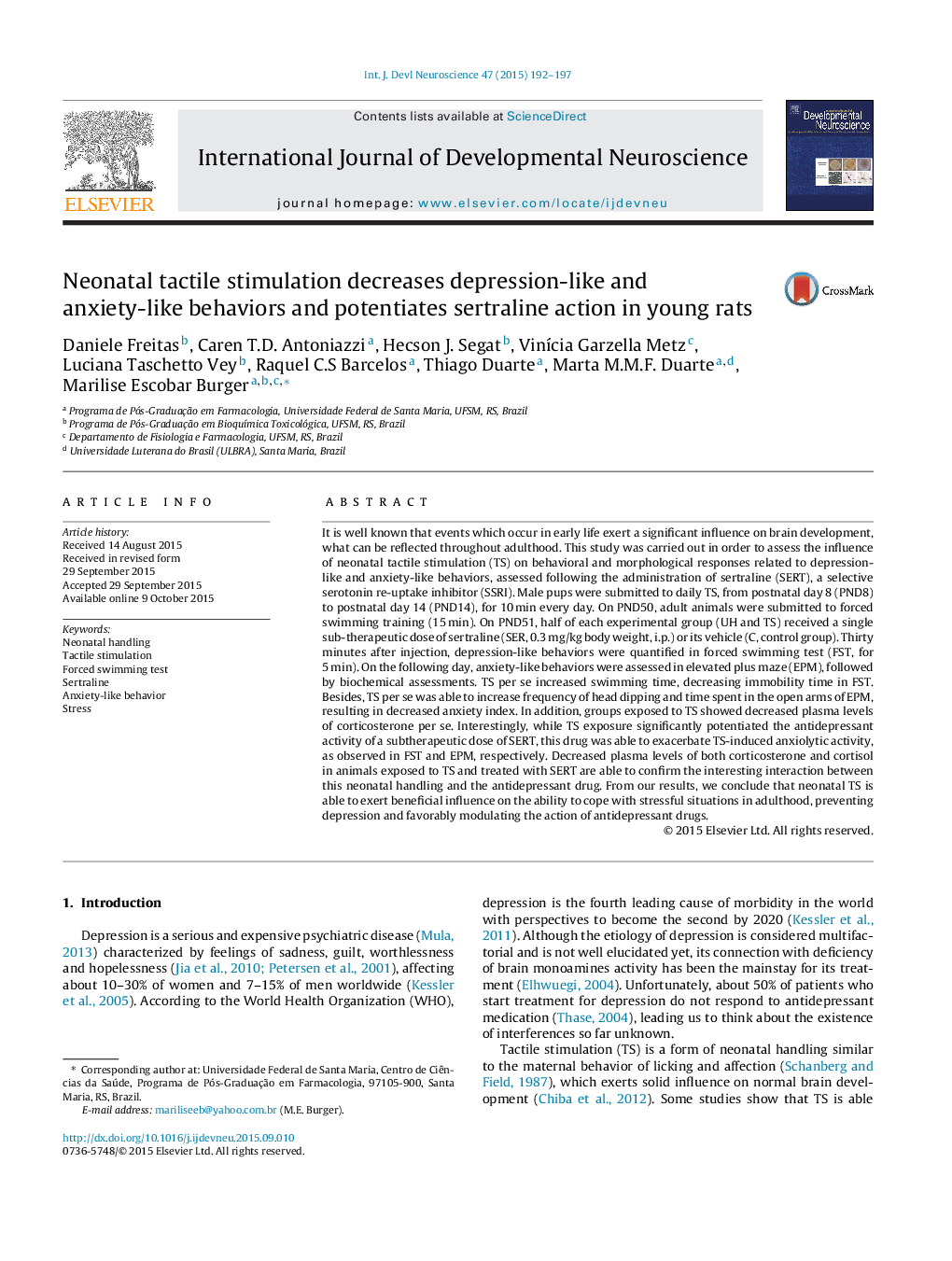| Article ID | Journal | Published Year | Pages | File Type |
|---|---|---|---|---|
| 2785649 | International Journal of Developmental Neuroscience | 2015 | 6 Pages |
•Neonatal tactile stimulation (TS) decreases depressive-like behaviors.•TS decreased plasma levels of corticosterone and cortisol.•TS is able to facilitate the activity of sertraline.
It is well known that events which occur in early life exert a significant influence on brain development, what can be reflected throughout adulthood. This study was carried out in order to assess the influence of neonatal tactile stimulation (TS) on behavioral and morphological responses related to depression-like and anxiety-like behaviors, assessed following the administration of sertraline (SERT), a selective serotonin re-uptake inhibitor (SSRI). Male pups were submitted to daily TS, from postnatal day 8 (PND8) to postnatal day 14 (PND14), for 10 min every day. On PND50, adult animals were submitted to forced swimming training (15 min). On PND51, half of each experimental group (UH and TS) received a single sub-therapeutic dose of sertraline (SER, 0.3 mg/kg body weight, i.p.) or its vehicle (C, control group). Thirty minutes after injection, depression-like behaviors were quantified in forced swimming test (FST, for 5 min). On the following day, anxiety-like behaviors were assessed in elevated plus maze (EPM), followed by biochemical assessments. TS per se increased swimming time, decreasing immobility time in FST. Besides, TS per se was able to increase frequency of head dipping and time spent in the open arms of EPM, resulting in decreased anxiety index. In addition, groups exposed to TS showed decreased plasma levels of corticosterone per se. Interestingly, while TS exposure significantly potentiated the antidepressant activity of a subtherapeutic dose of SERT, this drug was able to exacerbate TS-induced anxiolytic activity, as observed in FST and EPM, respectively. Decreased plasma levels of both corticosterone and cortisol in animals exposed to TS and treated with SERT are able to confirm the interesting interaction between this neonatal handling and the antidepressant drug. From our results, we conclude that neonatal TS is able to exert beneficial influence on the ability to cope with stressful situations in adulthood, preventing depression and favorably modulating the action of antidepressant drugs.
